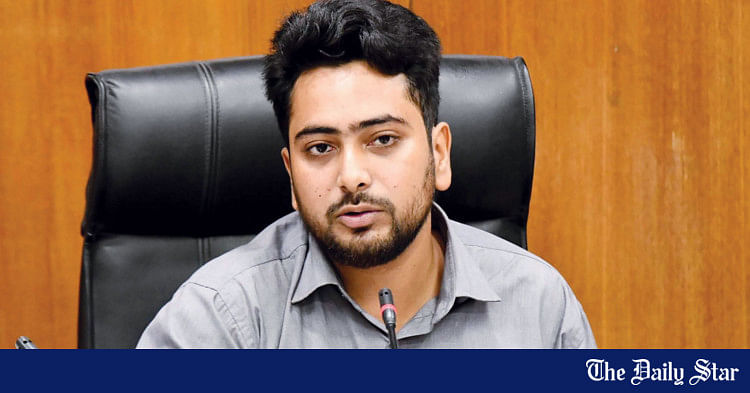India’s ruling elites risk harming the country’s internal politics by politicising Bangladesh’s internal affairs, Information Adviser Nahid Islam has said.
In a post on X, the adviser said, anti-Bangladesh and anti-Muslim politics will not serve India’s national interest.
By using the “minority persecution” narrative, he said, Delhi is attempting to rehabilitate the fascist Awami League, a party that persecuted minorities and committed genocide in Bangladesh. The narrative is also disrupting Bangladesh’s democratic and nation-building process.
He said Dhaka has urged India several times not to view Bangladesh through the Awami League’s lens and establish a new relationship based on equity, fairness, and mutual respect.
The adviser noted that India’s support for Sheikh Hasina, a fugitive accused of genocide and child killings, risks undermining shared democratic values between the countries.
India’s ruling elite is engaging in divisive politics and anti-Bangladesh rhetoric. Bangladesh shares historical and cultural ties with West Bengal, Tripura, and Assam; they are our stakeholders. During the ongoing uprising in Bangladesh, students from Kolkata and Delhi stood in…
— Nahid Islam (@NahidIslam_24) December 3, 2024
“Therefore, we call on India to cease false propaganda against Bangladesh and uphold harmony and respect for democracy,” he said, accusing India’s ruling elite of engaging in divisive politics and anti-Bangladesh rhetoric.
He said during the July uprising, students from Kolkata and Delhi stood in solidarity with Bangladeshi people and protested against Sheikh Hasina’s atrocities. These democracy-loving people of India are our friends, he added.
Bangladesh shares historical and cultural ties with West Bengal, Tripura, and Assam; they are our stakeholders, he said.
“However, India’s ruling elite and Hindutva forces do not want such democratic relations and harmony. They perceive Bangladesh’s uprising and the political awakening of its students as a threat. As a result, they are fostering hatred against Bangladesh.”
Criticising India’s record on minority rights, Nahid said the Bangladesh government is committed to ensuring full citizenship rights, dignity, and security for all minority communities, including Hindus.
He said minorities during the AL rule faced the highest level of persecution, yet received Delhi’s unconditional support.
India must not forget that its stability and integrity are closely interlinked with the stability and integrity of Bangladesh, he added.


